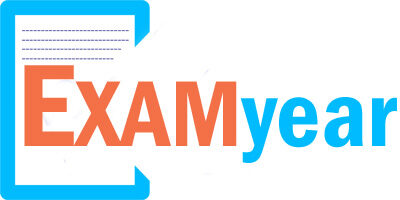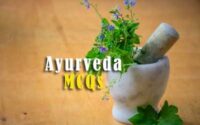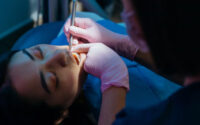Model Question Papers on Homeopathy for Practice
Download the Model Question Papers on Homeopathy to sharpen your skills in various sections. Definitely, using the last year Model Question Papers on Homeopathy question papers with answers Pdf, you can practice well for the exam and result will be also good.

We have provided Model Question Papers on Homeopathy Previous Papers along with Answers. Applicants can download Model Question Papers on Homeopathy Solved Question Papers and start preparation. At first, refer and download Model Question Papers on Homeopathy Syllabus & Exam Pattern.
Then, download the Model Question Papers on Homeopathy Model Question Papers. You can use this Model Question Papers on Homeopathy Sample Papers as a reference for your practice.
Model Question Papers on Homeopathy Practice Set
1. Ptosis is caused by the paralysis of:
(A) III cranial nerve
(B) IV cranial nerve
(C) V cranial nerve
(D) VI cranial nerve
2. Acute complication of diabetes is:
(A) Coma
(B) Blindness
(C) Diabetes Ketoacidosls & Coma
(D) Heart failure
3. Egg-shell calcification of hilar lymph nodes is characteristically seen in :
(A) Tuberculosis
(B) Sarcoidosis
(C) Teratoma
(D) Silicosis
4. Best artery for coronary angiography:
(A) Brachial A
(B) Femoral
(C) Carotid
(D) Axillary
5. The encephalopathy is commonly seen in chronic alcoholics:
(A) Reyes syndrome
(B) Multicystic encephalopathy
(C) Wernike’s encephalopathy
(D) Spongiform encephalopathy
6. All of the following may be associated with rheumatic fever except :
(A) Nephrilis
(B) Chores
(C) Polyanhrliis
(D) Carditie
7. Haemoptysis with renal involvement in seen in : –
(A) Geed Pasture’s Syndrome
(B) Rheumatoid Arthritis
(C) Relter’s Syndrome
(D) Behcet’s Diesease
8. Maize eating is related to :
(A) Pellagra
(B) Scurvy
(C) Beri beri
(D) Phrynoderma
9. The outstanding symptom of acute pancreatilis :
(A) Abdominal Bloating
(B) Severe constant upper abdominal pain radiates to back
(C) Jeundice
(D) Constipetion
10. The most serious complication of herpes simplex virus is :
(A) Leukemia
(B) Encephalitis
(C) HIV
(D) Rubella
Homeopathy MCQ Question Papers |
11. The following are true regarding Lyme disease except :
(A) It is transmitted by lxodid ticks
(B) Erythema migrans
(C) Borrelia recurrent is the etiological agent
(D) Borrelia burgdorferii is the etiological agent
12. Rheumatoid arthritis associated with pneumoconiosis is known as :
(A) Middle lobe syndrome
(B) Black lung syndrome
(C) Caplans syndrome
(D) Hamannrich syndrome
13. Ankylosing spolndylitis is characterised by all except:
(A) Possible fusion of entire spine
(B) involvement of sacroiliac joints
(C) High prevalence of HLA-B27
(D) Highest frequency of older women
14. Torres inclusion body may be found in
(A) Yellow fever
(B) Dengue A
(C) Kyasanur forest disease
(D) All of these
15. The initial complaint in primary biliary cirrhosis is
(A) Pain in abdomen
(B) Fever
(C) Weakness
(D) Pruritus
16. Black water fever is :
(A) Related to heavy parasitaemia
(B) Always associated with renal failure
(C) Related to Haemoglobinuria
(D) Observed in incompatible blood transfusion
17. Hereditary haemochromatosis is associated with :
(A) HLA-A locus on chromosome 6p
(B) HLA-B8
(C) HLA-B7
(D) HLA-B27
18. The parathyroid glands are:
(A) 3
(B) 2
(C) 4
(D) 6
19. Pernicious anaemia is associated with :
(A) Hypogammaglobulihaemia
(B) Blood group B
(C) HLA-B27
(D) Yellow sclera
20. The characteristic feature of hypertrophic osteoarthropathy is :
(A) Clubbing
(B) Pailor
(C) Muddy sclera
(D) Anaemia
21. Streak ovary is associated with :
(A) Klinetelter‘s Syndrome
(B) Asherman’s Syndrome
(C) Turner’s Syndrome
(D) Super Female
22. Haematometra seen in association with :
(A) Cryptomenorrhoea
(B) Congestive Dysmenorrhoea
(C) Oligomenorrhea
(D) D.U.B
23. Powderburn’s seen in :
(A) Tuberculous endosalpinglosis
(B) Pelvicendometriosis
(C) Tuberculous cervicitls
(D) Adenomyosis
24. Basal body temperature noted in:
(A) Ovulation
(B) Pregnancy
(C) Vaginal infection
(D) Menopause
25. Fixed retroversion seen in :
(A) PID
(B) Uterine Prolapse
(C) Adenomyosis
(D) Fibroiduterus
26. Culdocentesis is a method of diagnosis in :
(A) Fibroiduterus
(B) Adenomyosis
(C) OvarianTumour
(D) Ectopicgjestation
27. Complete mole associated with :
(A) Hydatidiform mole
(B) Choriola
(C) Missed abortion
(D) None of these
28. Mastitis followed by breast abscess is most frequently due to :
(A) Bacterlal Vaginosis
(B) Pneumococcus
(C) E. coli
(D) Staphylococcus
29. One of them is not a complication of Placenta Previa:
(A) Malpresentation
(B) Postmaturity
(C) Preterm labour
(D) Intraparium Haemorrhage
30. Which sign is absent in abdominal pregnancy?
(A) Braxton Hick’s sign
(B) Foetal movements
(C) Foetal heart sounds
(D) None of these
31. Commonest site of Branchial Cyst is:
(A) Lower 1/3 of sternomastoid on anterior border
(B) Lower 1/3 of sternomastoid on posterior border
(C) Upper 1/3 of sternomastoid on anterior border
(D) Upper 1/3 of sternomastoid on posterior border
32. Most common coagulopathy noted in surgical patient is :
(A) Thrombocytopaenia
(B) Afibrinogenemia
(C) Fibrinolysis
(D) Factorvill deficiency
33. Most important step in Cardiac resuscitation is:
(A) Bicarbonate administration
(B) Cardiac massage
(C) Ventilation
(D) Intracardia cadrenalin
34. Hourglass stomach is seen in :
(A) Gastric carcinoma
(B) Gastric [ulcer
(C) Gastric lymphoma
(D) Corrosive stricture
35. Commonest site for carcinoid tumour is :
(A) Ileum
(B) Appendix
(C) Rectum
(D) Colon
36. Which of the following gas is a radiosensitiser?
(A) CO2
(B) N2
(C) O2
(D) CO
37. In obstruction of large gut, rapture occurs at the:
(A) Caecum
(B) Ascending colon
(C) Transverse colon
(D) Descending colon
38. Most common post operative complication of Spleenectomy is :
(A) Left side pleural effusion
(B) Subphrenic abscess
(C) Left lower lobe atelecfasls
(D) Pancreatic fistula
39. Which is the commonest tumour of urinary bladder?
(A) Papilloma
(B) Adenocarcinoma
(C) Transitional cell carcinoma
(D) Squamous cell carcinoma
40. “Rasberry tumour’ is another name for:
(A) Umbilical fistula
(B) Umbilical granuloma
(C) Umbilical adenoma
(D) Meckel’s diverficulum
41. Commonest cause of deafness in children under 12 years:
(A) Trauma
(B) Wax
(C) Otosclerosis
(D) Secretory otitis media
42. CSF Rhinorrhoea is usually due to fracture of :
(A) Ethmoidal bone
(B) Cribriform plate
(C) Orbital plate
(D) Maxilla
43. Constantly changing refractory error is seen in :
(A) Traumatic cataract
(B) Diabetic cataract
(C) Morgagnian cataract
(D) Intumescentcataract
44. Commonest tumour arising from the metaphysis is :
(A) Osteoclastoma
(B) Ewing’s sarcoma
(C) Osteosarcoma
(D) Synovial sarcoma
45. In rheumatoid arthritis, the part which is affected most is :
(A) Synovium
(B) Subchondralbone
(C) Cartilage
(D) Tendon
46. The concept “Levels of Prevention” in the health care systems aims at:
(A) identification of stages of a disease
(B) Control and eradication of a disease
(C) Preventing the endemic and epidemic risks
(D) Intervention in the natural history of the disease
47. All are true of Soyabean execept :
(A) 40% Protein + 20% Fat
(B) Lysine deficient
(C) Protein of high nutritive value
(D) 4% mineral
48. All are true about attack rate except :
(A) Is a type of prevalence rate
(B) Expressed as percentage
(C) Used when risk period is short
(D) Reflects extent of epidemic
49. Following are true regarding chlorination except :
(A) Contact period — 30 minutes
(B) Water should not be turbid
(C) Residual chlorine 0.5 mg/L.
(D) Chlorine demand should be estimated
50. Which of the following is not true of Cohort Study?
(A) Expensive
(B) Incidence can be calculated
(C) Always prospective
(D) Used to study chronic disease



